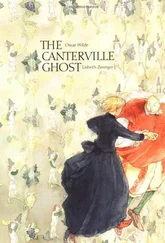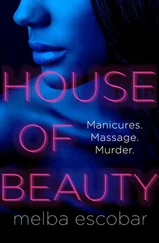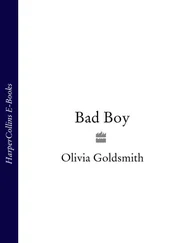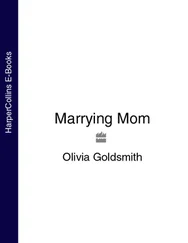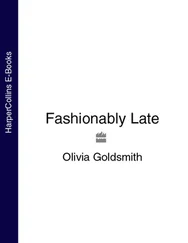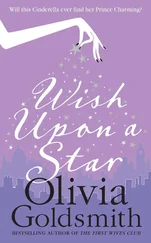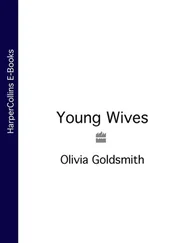“Yes,” Mrs. Perkins said. “But I think the lesbian love scene is too graphic.”
“Mrs. Perkins, editor of genius,” Gerald snapped. What he did not need now was negative feedback. What he had to do was push forward, finish the goddamned book, and see what happened then. If worse came to worst, he could always bring Pam in to edit it. Pam Mantiss was his editor in chief, a woman he had slept with, promoted, and piled work onto for more than a decade. She was smart and hard and hardworking. In fact, she did most of his Work because he didn’t have the time for it anymore. Now he looked up from his desk, “When I want an editorial opinion, I’ll ask Pam,” Gerald told Mrs. Perkins. “What I’d like from you is some coffee.”
Mrs. Perkins merely nodded and put the pages down on the right-hand corner of his desk. “Ellen Levine called about that contract,” she told him.
“Ellen Levine always calls about all contracts,” he snapped. “She reinvents the wheel with every one. Tell Pam to handle it.”
Mrs. Perkins left the office, and Gerald turned back to the screen of the word processor, staring at its gray and empty face. How would he fill another three hundred manuscript pages? He hadn’t a clue. But he knew he had to do it before the end of next month if he wanted to collect his acceptance money. He rubbed his glabrous hands together nervously. He turned to face the huge windows of his office. Somewhere out there he had to find half a million people who would spend twenty-three dollars each to buy his book. Because Gerald had to be a success this time to keep his show rolling.
6
Manuscript: something submitted in haste and returned at leisure.
—Oliver Herford
Opal O’Neal trudged around the corner, stopping to check the numbered sign to make sure she was on the right street. She’d always disliked the idea of numbered streets—it seemed so impersonal, so anonymous. But, she supposed, that was what New York City was all about.
She slowly walked along the block of run-down brown-stones and tenements. She tried to recall by sight which one had been her daughter’s, but all the buildings looked alike. She’d visited Terry twice but not in the last three years. There hadn’t been extra money for that. Opal’s eyes filmed over with tears, and though she didn’t allow them to fall—not in public—she had to pause a moment until her vision cleared. Then she spotted the black-painted “266” over a building entrance and knew this was the place, the address to which she had mailed so many long and loving letters. The place where her daughter had died.
Opal had gotten the news over the telephone, from a woman police detective. She barely believed it then, and these few days hadn’t brought much more acceptance. She could have believed that Terry had been mugged or even murdered, but not that she had killed herself. Still, even over the phone, the woman had been quite convincing. There had been no break-in, she said, there were no signs of a struggle, and there were the carefully taped rejection notices, signposts to suicide. Last, there had been the “choice of modes,” as the woman put it. Apparently, women under forty chose hanging more frequently than any other suicide method. Opal wondered, for a moment, what the preferred method for women over forty was. But she shook that thought from her head. It was cynical and mean-spirited, and Opal tried to be neither. She simply wanted to be a good and loving person, a good and loving mother, but it seemed that was out of the question now.
Opal squared her shoulders and walked down the three steps leading to the just-below-street-level entrance to the building. In New York real estate it was called a “semibasement”—Terry had once written that to Opal—but it seemed basement enough to drop the semi altogether. Opal thought. She went through her handbag and took out the case she had carefully secreted in the side pocket. The police had sent Opal her daughter’s keys and requested that she collect not only Terry’s body, which had been held at the Center Street morgue, but also her personal effects.
Opal had trouble with the key to the building’s front door. The lock seemed loose, as if a million keys had jiggled it, but she finally got the key to fit properly and the door gave under the weight of her shoulder. Dank air met her—there was no lobby or foyer, just the dark hallway that led past one door, on to the metal-tipped stairs upward, and then finally to the door of Terry’s apartment in the back. Opal had just managed to get the second key into the second lock and was pulling the door open when a man’s voice stopped her.
“Hey! What the hell are you doing? And who the hell are you?”
Opal straightened herself to her full height of almost five feet. In the dimness she could just make out his stooped shape. “I am Opal O’Neal, and I am here to get my daughter’s things.”
The man paused for a moment, as if he was thinking about whether or not to be embarrassed, then deciding not to be. “Well, all right,” he said grudgingly. As if he had anything to say about it at all. Opal merely nodded her head curtly, stepped into the last home her daughter had ever known, and closed the door behind her.
It was a sad room. Swiftly, Opal took in the battered table, the daybed, the single squat, overstuffed chair. Somehow, when she had visited Terry, it hadn’t seemed so grim. Why hadn’t she noticed? Had the bright presence of her daughter obscured the lurking darkness? Although it was a sunny, cold day outside, the room was murky as a cave. The dark blue was a bad color. Opal fumbled for the lightswitch, and the harsh overhead chandelier flicked on. She couldn’t keep her eyes from flicking upward to the place where Terry had chosen to tie the noose. Quickly she looked away. By now the undertaker had picked up Terry’s body from the morgue. Tomorrow Terry would be cremated, and the following day Opal would bring her ashes back home to Bloomington. Their home. A town where streets had names, not numbers. The town she never should have let Terry leave.
Opal opened her large purse and took out the canvas zipper bag she had folded within it. She went to the dresser and pulled open the top drawer. Inside were half a dozen pairs of white underpants, a single pair of unopened panty hose, a few nightgowns, and two brassieres. There was also a diaphragm in its plastic case. Opal blushed when she thought of the police searching through her daughter’s private things. But Opal wasn’t a prude. She knew that Terry had had a lover—at least one—and she had not disapproved. She may be a fifty-four-year-old librarian from Indiana, but Opal thought of herself as a modern woman. In fact, she was only against marriage , not lovers. In her experience, men seemed to turn bad only after another man performed the ring ritual over them. She shook her head, scooped up the drawer contents, and opened the next drawer down.
Opal knew that her daughter had spent the last decade working on her novel. She had encouraged and supported Terry while she worked. And Terry had even shared bits of it with her. Not much, and always diffidently. But it had shown her that Terry knew men, and the writing had been good, very good. Opal was not an indulgent reader. Years at the library, and at home in the evenings reading Flaubert, Turgenev, Austen, Forster, and the other greats had given Opal an informed and exquisite taste. She knew that Terry shared that taste and, moreover, had the creative wellspring to do more with it than Opal ever had. Terry had been her own harshest critic and most merciless editor. But on those few occasions when she had shared sections of the book with Opal, Opal had seen how brilliant it was.
Читать дальше



